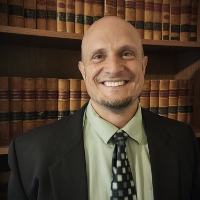 Aitkin RICO Act Lawyers, Minnesota
Aitkin RICO Act Lawyers, Minnesota
Sponsored Law Firm
-
 x
x

Click For More Info:
-
The Law Offices of Richard L. Cooper, P.A.
848 Brickell Avenue Suite 800 Miami, FL 33131» view mapDWI/DUI, Drug Trafficking, Felony Nationally Ranked Top 40 Under 40
With Richard L. Cooper you can expect a trusted confidant who will work diligently to fully understand your case and determine a road map to help you regain control of your life.
800-756-2781
Not enough matches for Aitkin RICO Act lawyer.
Below are all Aitkin Criminal lawyers.
Sponsored Lawyers
1-2 of 2 matches
Divorce & Family Law, Criminal, Real Estate, Estate, Bankruptcy & Debt
The Law Office of Attorney Edward R. Shaw is located in Brainerd, Minnesota and has been serving the Brainerd Lakes Area and surrounding counties with top quality legal services since 1996.
(more)Criminal, Divorce & Family Law, Accident & Injury
Proudly taking criminal, divorce & family, and accident & injury cases out of Brainerd, Minnesota and the surrounding areas.
(more)



 Richard L. Cooper Miami, FL
Richard L. Cooper Miami, FL AboutMiami Attorney at Law
AboutMiami Attorney at Law ServicesCriminal Defense
ServicesCriminal Defense


